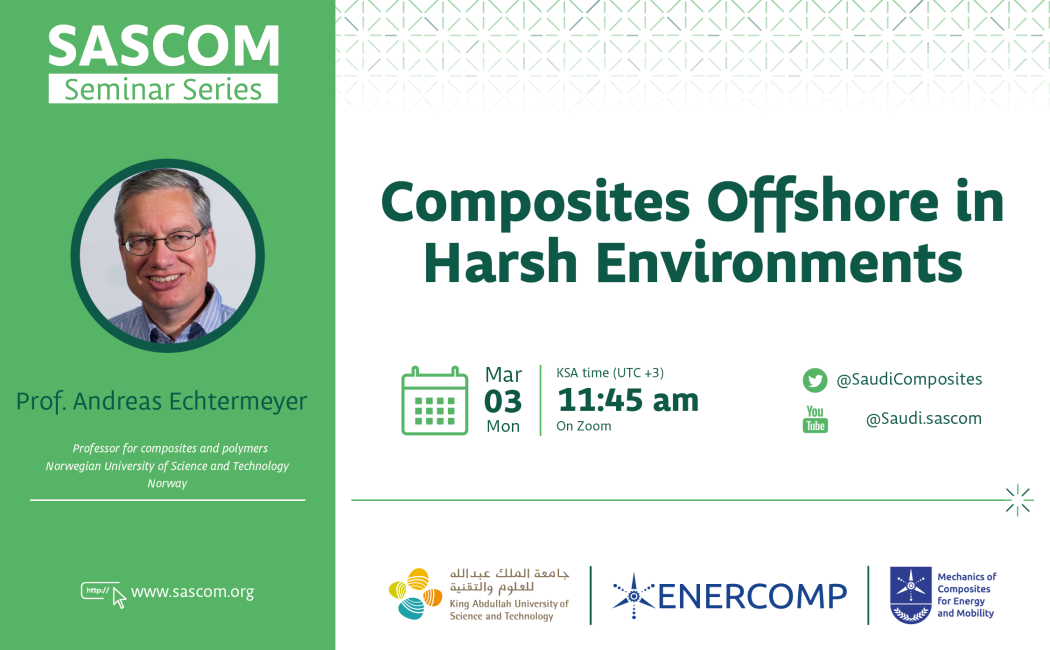


06 February, 2025
Monday, March 3rd, 2025
11:45 KSA time (GMT +3)
Composite Offshore in Harsh Environments
By Prof. Andreas Echtermeyer
Professor for composites and polymers – Norwegian University of Science and Technology.
Abstract
Composites are being used or are considered for being used in offshore structures such as pipes, pressure vessels and several other components. Applications are mostly related to exploration, transport or storage of traditional hydrocarbons as well as hydrogen and CO2. One reason stated for using composites are their good long-term properties (no corrosion) in harsh environments, such as oil, gas, water, extreme temperatures and mechanical loads. In safety critical applications stating good properties is not sufficient. It has to be shown that the composite component has acceptable properties at the end of its design life, typically 25 to 50 years after being put into service.
A general approach to show how properties change over the lifetime will be presented. Chemical and physical aging will be discussed and the need to accelerate and extrapolate test results. All this needs to be combined with mechanical exposure, short-term, cyclic and static fatigue. Each combination of materials and environments requires specific evaluations. This presentation will concentrate on the general aspects as proposed for the new Recommended Practice DNV-RP-B302. Some experimental test results from research projects will be shown to illustrate specific aspects of the approach.
Bio
Andreas Echtermeyer is Professor for composites and polymers in the Department of Mechanical and Industrial Engineering at the Norwegian University of Science and Technology (NTNU) Trondheim.
He joined the university full time in 2008 after having been an adjunct professor since 2003.
Previously he worked for Det Norske Veritas (DNV) as senior principal engineer in the section “Structural Integrity and Laboratories” and was responsible for composites and polymers in offshore applications. He continues to be a consultant for DNV. He received his PhD in Materials Engineering from the Massachusetts Institute of Technology and his Diploma in Physics from the Technical University of Munich.
Scientific research areas are in the field of composite materials and polymers (among others): mechanical short- and long-term properties, interaction of materials and fluids, recyclable materials, material modeling, multiscale modeling and structural design, composite to metal and multi-material interfaces, buoyancy materials, fabrication methods, monitoring methods, quality assurance. Application areas are marine and offshore, energy transport and storage,
gas and liquid containment, hydrogen, wind energy.
He has 18 years of industry experience with composite applications. He is author or co-author of more than 200 articles and more than 200 technical reports. He was the main contributor and responsible for the development of DNV’s offshore standards for composites offshore, composite risers and thermoplastic composite pipes. He was further heavily involved in the development of the rules for Compressed Natural Gas (CNG) composite pressure vessels for ships, of the ISO standard update for umbilicals, the Recommended Practice for adhesive joint technology for repair of metal structures and of the Recommended Practice for Qualification of New Technology. He has been project manager or responsible of many national and international research projects as well as industrial development projects.